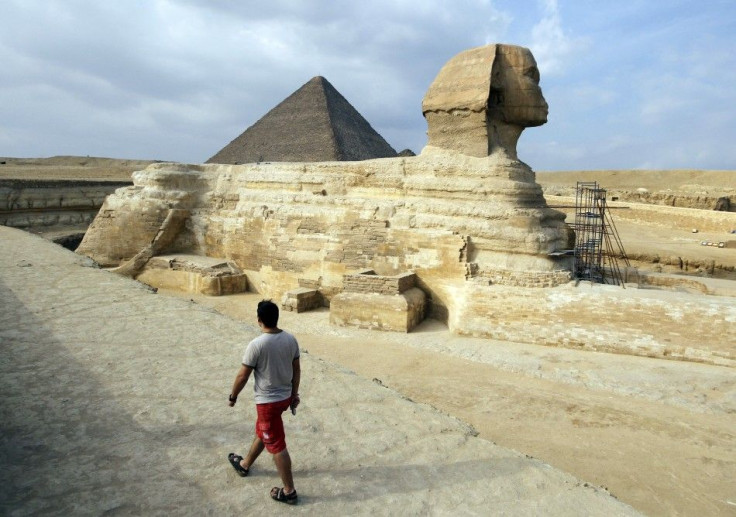Egypt, Its Economy In Tatters And Strapped For Cash, Considered Renting Out Pyramids For Tourism

U.S. Secretary of State John Kerry arrived in Cairo Saturday for talks with Egyptian leaders inside and outside the government, while demonstrators protested in Port Said and the country edged closer to deeper economic distress.
"It is paramount, essential, urgent that the Egyptian economy get stronger, that it gets back on its feet," Kerry told Egyptian and U.S. leaders in Cairo, Reuters reported. "It's clear to us that the [International Monetary Fund] arrangement needs to be reached, that we need to give the market that confidence."
Kerry is scheduled to meet with Egyptian President Mohammed Morsi on Sunday.
Egypt’s economic situation has deteriorated enough that the religious website Al-Ketab al-Mounir, or the Enlightened Book, presented a proposal to the country's Finance Ministry to rent out the nation’s “key monuments, including the pyramids of Giza,” the English-language Egypt Independent reported. According to the proposal, the pyramids, the Sphinx, and the temples of Luxor could be rented out to international tourism companies for three to five years, thus generating an estimated $200 billion for Egypt.
The proposal was rejected, but it was considered by the Ministry of State for Antiquities.
Egypt’s tourism industry was formerly a major tentpole of country's economy: In 2008, it accounted for almost $11 billion of its $163 billion gross domestic product and employed about 12 percent of the nation's workforce, Reuters reported.
Kerry is pressing Egyptians to finalize an agreement with the IMF for a $4.8 billion loan. The deal was originally agreed to last November, but the IMF put it on hold when Egyptians once again took to the streets to protest a constitutional referendum. Once the IMF loan is put in place, the U.S. has pledged an additional $1 billion.
Egypt is mere months away from completely exhausting its currency reserves, and the Egyptian pound is in free fall against the U.S. dollar.
But the IMF loan is contingent not only on Egypt's carrying out of economic reforms but also on its calming of the street violence that has plagued it in recent years, according to the Associated Press via Politico.
Along this line on Saturday, one person was killed during a demonstration in the Nile Delta city of Mansoura, while five people were run over by a police vehicle in the Suez Canal city of Port Said.
Port Said has been a hotbed of unrest since 21 people were sentenced to death in January for their roles in a soccer-related riot there last year. The violence has drawn the notice of Human Rights Watch, which released a statement on Saturday calling on Egyptian judges to “fully examine police responsibility for unlawful killings.”
© Copyright IBTimes 2025. All rights reserved.






















